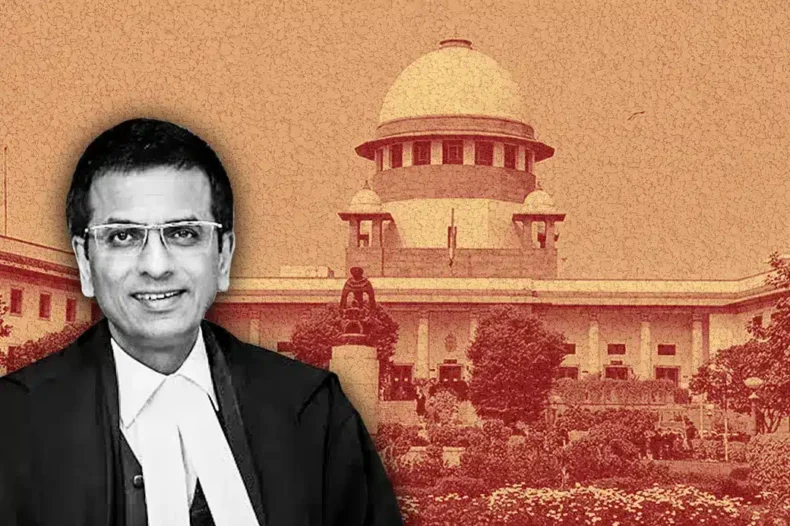Amidst the recent controversy over the appointment of the judges between the executive and judiciary, the CJI remarked that the sexual orientation is immaterial in characterising the ability of the judge.
He spoke at the 20th Edition of India Today conclave which is being held in Delhi. The remarks hold significance owing to the recent spat over appointment of Saurabh Kirpal, a gay advocate, as a judge of the Delhi HC. In January the collegium rejected the contentions placed by the govt over his sexual orientation while rejecting his name for the said post. The collegium stood adamant over his appointment. The Centre raised concerns and gave the reasoning behind the objection over his appointment that his partner is a Swiss national which might intrude on the primacy of the judiciary.

The CJI was asked, that the reports of the IB (that questioned on his candidature as he openly declared his sexual orientation) has been in the public domain i.e., on the website of the apex court, to this the CJI replied that it is a step further to ensure that opaqueness doesn’t exist in the appointment procedure, this may enable the transparency to thrive, thereby reposing the trust in the mechanisms. The Union Law minister recently anguished over the revealing of the reports of the IB and RAW in the public stating that these reports contain sensitive information which may have ramifications for the person in question.
It is important to note that after the names have been recommended by the collegium to the govt, the latter may conduct an inquiry against the recommendations through Intelligence Bureau or Research and Analysis Wing. The government’s role can be best described as a mere “formality” in the appointment process.

Kirpal is the son of the 31st CJI B.N. Kirpal has represented Navtej Singh Johar in a landmark verdict which decriminalised homosexuality. Moreover, he is advocating for bunch of petitioners to seek the legality for same sex marriage. His appointment to the institution has been in question since 2017.
The CJI shielded the collegium system from any attacks in furtherance of the criticism advanced by the Union Law Minister Kiren Rijiju at the same Conclave asserting that the job of appointing the judges is a pure administrative work and Judges have negligible role to play in the process.
It is important to note here that India is the only democratic country where Judges appoint other judges as stated by the court in Supreme Court Advocates-on-record Association & Anr. vs. Union of India (The fourth Judges Case), wherein the court struck down 99th Constitutional Amendment Act, 2014 which aimed to give primacy to the govt in matters relating to the appointment of the judges. Moreover, he remarked that the system may not be a perfect one but it is based on the cardinal principle of independence.
Speaking about the ‘Indianising’ and ‘modernising’ of the court he said that the court shall reach to the public following the top-down approach in reaching to the people via the language which is understandable. The court has adopted AI translation for the judgements and is in the process of approving the uniform citation for the cases.
The system has met with displeasure and vague comments with several govt officers ranging from vice president to Union Law Minister. The vice president recently frowned over the views rendered by the apex court in the aforesaid judgement. Later the apex court published the statement that collegium system is the law of the land and has to be followed.
Other similar views: past CJIs
The predecessor to CJI Chandrachud, UU Lalit and SA Bobde were in favour of the primacy of the judges over the government in appointing the judges. CJI UU Lalit in a recent conference on Judicial Appointments hosted by the Campaign for Judicial Accountability and Reforms wherein he termed collegium system as nearly perfect and shared his experience on being part of the system. He also advocated for means and ways to let this system survive without any external influence. He also drew the inclination over the the judges’ efficiency in judging the potential candidature for the position of judgeship, than the executive.













